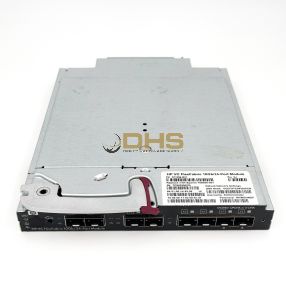-
-
-
-
- SSD
- HDD
- MEMORY
- SWITCH
- WIRELESS
- RACK SERVER
- BACKPLANE
- BATTERY
- BEZELS
- BLADE SERVER
- BLANK
- CABLE
- CADDY
- CONTROLLER
- CPU
- DVD/CD
- EXPANSION
- FAN
- FIREWALL
- GPU
- HBA
- HEAT SINK
- KVM SWITCH
- LIBRARY
- LICENSE
- NETWORK ADAPTER
- NETWORK MODULE
- PDU
- PSU
- RACK MOUNT KIT
- RAID CONTROLLER
- RISER CARD
- ROUTER
- SAN SWITCH
- SCREEN
- SOFTWARE
- SYSTEM
- SYSTEM BOARD
- TAPE
- TOWER SERVER
- TRANSCEIVER
- SERVICE
- PCI CARD
-
-
-
- HDD
- SSD
- MEMORY
- NETWORK ADAPTER
- PSU
- BACKPLANE
- BATTERY
- BEZELS
- BLADE SERVER
- BLANK
- CABLE
- CADDY
- CONTROLLER
- CPU
- DVD/CD
- EXPANSION
- FAN
- GPU
- HBA
- HEAT SINK
- KVM SWITCH
- LIBRARY
- LICENSE
- MOUSE
- NETWORK MODULE
- PDU
- RACK CABINET
- RACK MOUNT KIT
- RACK SERVER
- RAID CONTROLLER
- RISER CARD
- SERVICE
- SOFTWARE
- STACK MODULE
- SWITCH
- SYSTEM
- SYSTEM BOARD
- TAPE
- TOWER SERVER
- TRANSCEIVER
-
-
-
- HDD
- SSD
- MEMORY
- NETWORK ADAPTER
- PSU
- BACKPLANE
- BATTERY
- BEZELS
- BLADE SERVER
- BLANK
- CABLE
- CADDY
- CONTROLLER
- CPU
- DVD/CD
- EXPANSION
- FAN
- GPU
- HBA
- HEAT SINK
- KVM SWITCH
- LIBRARY
- LICENSE
- NETWORK MODULE
- PDU
- RACK CABINET
- RACK MOUNT KIT
- RACK SERVER
- RAID CONTROLLER
- RISER CARD
- SAN SWITCH
- SCREEN
- SOFTWARE
- SWITCH
- SYSTEM
- SYSTEM BOARD
- TAPE
- TRANSCEIVER
- SERVICE
-
-
-
-
-
-
-
-
-
-
-
-
-
-
-
-
Checkout using your account
This form is protected by reCAPTCHA - the Google Privacy Policy and Terms of Service apply.
Checkout as a new customer
Creating an account has many benefits:
- See order and shipping status
- Track order history
- Check out faster
HPE Network Modules



Can’t find what you are looking for?
HPE Network Module – Seamless Integration
Expand your enterprise networking capabilities with versatile HPE network modules, designed to integrate seamlessly into Hewlett Packard Enterprise switches, servers, and systems. These modules provide critical enhancements to connectivity, offering increased port density, higher bandwidth, and support for specialized network protocols. Whether you’re upgrading core infrastructure, deploying edge systems, or enhancing virtualization environments, HPE network expansion modules ensure your setup remains agile, scalable, and performance-optimized.
Types of Network Modules for HPE Systems
HPE offers a wide range of network interface modules tailored to specific performance and infrastructure needs. Ethernet expansion modules support various speeds – such as 1GbE, 10GbE, 25GbE, and 100GbE – using copper or fiber connections through RJ45, SFP+, and QSFP ports. These options provide flexible configurations that allow organizations to scale efficiently based on workload demands.
Other module types include Fibre Channel modules for high-speed storage networking, stacking modules for inter-switch connections, and converged network adapters (CNAs) that unify data and storage traffic. Some modules are optimized for software-defined networking (SDN) environments or hardened for edge computing deployments in industrial and remote locations.
Benefits of Genuine HPE Expansion Modules
Using genuine HPE network modules ensures compatibility, stability, and optimal performance within HPE infrastructures. These modules are tested to strict enterprise standards and work flawlessly with HPE ProLiant servers, HPE Aruba switches, and HPE’s management platforms. Many support hot-swap installation, minimizing downtime during upgrades or maintenance.
Advanced features like offloaded packet processing, energy-efficient designs, and integration with HPE network management tools improve throughput, reduce latency, and simplify system monitoring. HPE’s rigorous validation process ensures that each module maintains signal integrity, even in high-throughput environments.
Choosing the Right HPE Network Module
When selecting an HPE network module, consider your current and future bandwidth needs, the type of connections required (e.g., RJ45 vs. SFP+), and form factor compatibility with your existing servers or switches. Also, plan for redundancy and scaling, especially in virtualized or storage-heavy environments.
You can explore relevant subcategories for optimized deployment, such as:
Investing in the right module ensures future-proof infrastructure that’s ready for evolving demands.
- Price:
- Actual Price:

